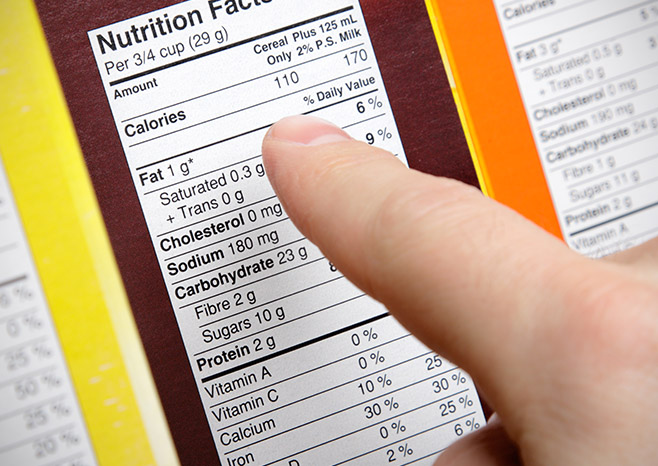
Clues on Calories
The most basic element of weight management is counting calories. We all know what calories do to our waistline: Lots of calories = bad! Fewer calories = good! Right? Well, sort of. Keeping your total number of daily calories in check can definitely help you meet your weight-loss goals, but it’s important to do it right.
Let’s start with what calories really are: a unit of measure to define the amount of energy our bodies receive from food. We need a certain amount of them to survive, and that number varies from person to person. Activity level, genetics, metabolism—these all contribute to how efficiently your body burns calories and uses energy. If you’re trying to lose weight, you must decrease the number of calories you’re eating, but it’s essential to do it the right way.
To get a baseline number for the number of calories you need to maintain your current weight, multiply your weight in pounds by 15. From that number, subtract 500 – 1,000 and that is your target calorie range daily to lose weight. For example, a 5′ 2″ woman who is 160 lbs needs 2,400 to stay the same weight. To start dropping pounds, she’s got to lower her caloric intake to 1,400 – 1,900 per day.
But not all calories are created equal. You can add 100 calories by eating an apple or by eating a cookie. The apple contains fiber and vitamins. The cookie contains sugar and fat. This is why many popular “points” systems allow unlimited fruits and vegetables that technically match unhealthy foods calorie-wise. Fats and sugar are basically “empty” calories: They create fat and spike insulin levels without providing any health benefit. Some relatively high-calorie foods are very good for you and provide sustained energy, such as granola, meat, tofu, fish, avocado, milk, beans, sweet potatoes, whole grains and nuts. Careful portion control can allow you to consume these foods and still stay on track with weight-loss.
By combining a lower-healthy-calorie diet with increased activity, you can expect to drop 1 – 2 pounds a week. Doctors recommend that women go no lower than 1,200 calories per day and men stay at 1,400 or above, as your body needs that minimum to function properly. Resources listing calorie counts for just about every food under the sun are available online or from booksellers, and be sure to read the nutrition label on packaged foods. Pay special attention to the “serving size” line and portion sensibly. By understanding where calories come from and their overall nutritional profile, losing weight and keeping it off can become second nature.




